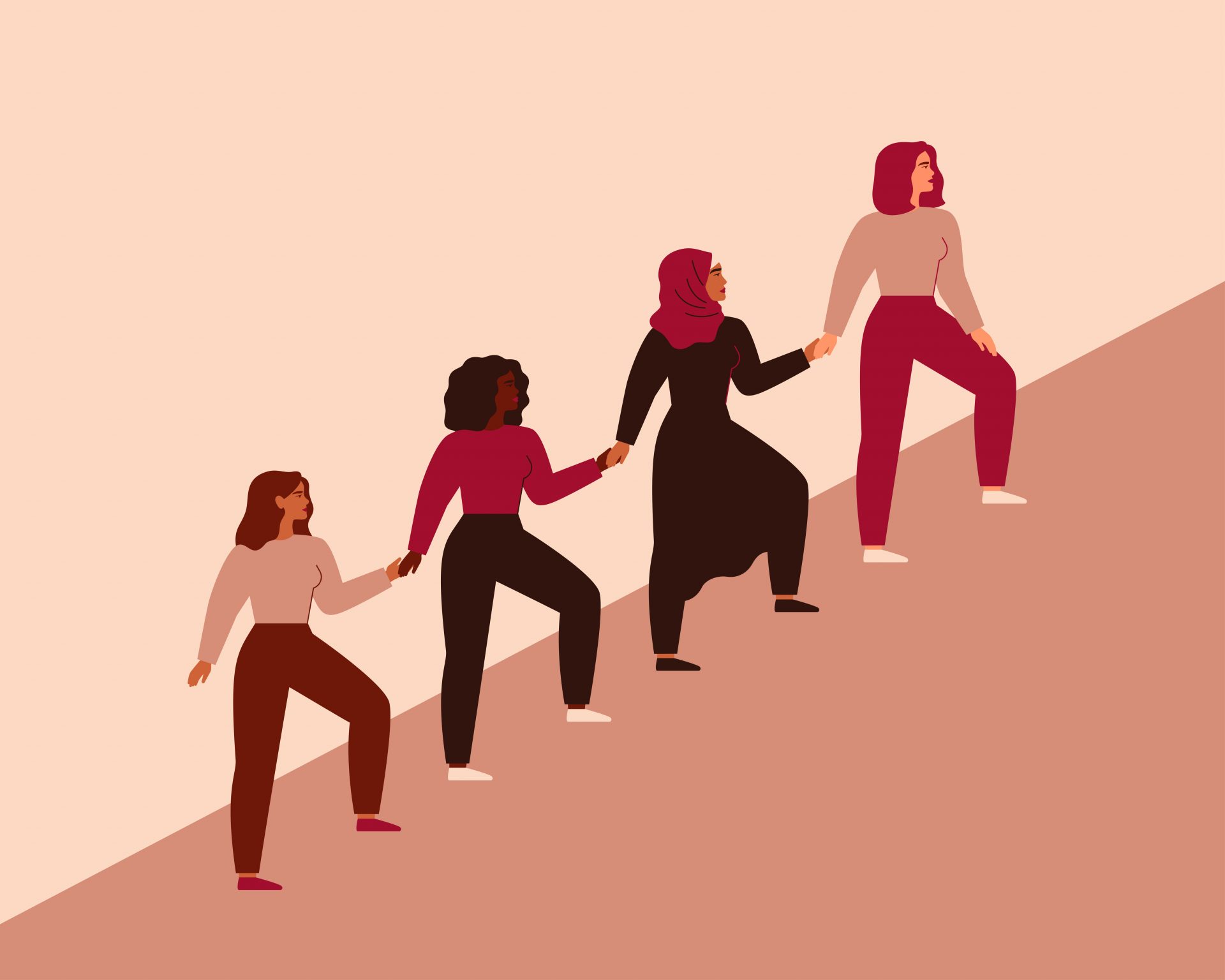ecstasy green hearts
Written by Kayleigh Dray
Kayleigh Dray is Stylist’s digital editor-at-large. Her specialist topics include comic books, films, TV and feminism. On a weekend, you can usually find her drinking copious amounts of tea and playing boardgames with her friends.
Do you find it difficult to accept help from others, let alone ask for it? It’s time to talk about why this might be…
I can’t tell you how often I’ve ruined my own day by refusing to ask for help – or even accept help from others when it’s offered without any prompting whatsoever.
There’s the time my washing machine blitzed out mid-cycle, resulting in me schlepping a huge haul of sodden sheets and clothes over to the launderette (despite my neighbour insisting it was absolutely fine to use their washer-dryer). Or the time I found myself cheerily turning down lifts from pals when they learned that I’d become stranded in the middle of nowhere. Or the time that I waved off a colleague when they saw I was struggling – really struggling – to meet a Friday deadline, and decided to work four hours overtime instead. Or the time that…
Well, you get the picture; the list goes on and on, forever and ever. And, no matter how much older and (allegedly) wiser I get, phentermine doctors in elgin il I’ve never been able to shake off this weird insistence that I need to do everything myself – even when it puts me out massively or has a huge dampener on my emotional wellbeing.
Of course, I am not unique in this. In fact, many others out there need help and are too afraid to ask.
Intrigued to find out why this is – and how myself and others can overcome our fears – I reached out to Beingwell life coach Grace McMahon.
Here’s what I learned.
Why are so many of us afraid to ask for, or even accept, help?
“Asking for help is daunting, even when it’s quite a simple request, because many of us have learnt to not ask for help in our lives,” says McMahon. “It’s putting someone else out, we feel we should be able to do it alone, and we fear what others may think of us.
“So, when it comes to accepting help, some of us may not realise we could do with an extra hand and support; for others, the support we get doesn’t fit quite right with us and so we turn away from it.”

What does this disinclination say about us on a deeper level?
“It can say a lot about how we’ve learnt to understand the world around us,” says McMahon, “because asking for help requires relying on someone else. It demands we show our vulnerable side. And, if we’ve been let down before, we might feel incredibly uncomfortable doing this.”
Of course, there’s also the fact that people wildly underestimate the odds that others will help us, which leads us to assume that our request may be rejected.
“It might also be that we like to be in control and find it difficult to relinquish that. But, as a society, we have created a stigma around asking for help, not being OK, and needing more,” continues McMahon.
“This means, then, that we’re not sure how to accept help, let alone what it’s going to do for us, and we’re particularly caught up with worrying about what others will think of us accepting help in any form.
“Thankfully, we are breaking this stigma down, but it’s still going to take time.”
How can we get comfortable asking for help when we need it?
“As we tend to feel guilt and shame around asking for help, it’s useful to try unravelling why this may be,” says McMahon.
“Try asking yourself, ‘What will happen if I ask for help? What has happened before when I have asked for help? Who should I ask for help?’
“These questions serve to help us break down some of the barriers to getting support, understand why we worry about what might happen, ruminate on previous experiences, and figure out the right person or people to turn to – ideally someone you can trust and rely on.”

McMahon goes on: “We can also prepare what we want to say, as well as figure out how much detail or backstory is required to help that person or people understand our request.
“When it comes to actually biting the bullet and asking, it might be worth having some notes written down that you can use, as you’ll find it easier to be clearer about what will suit your needs, not to mention shift the discomfort that comes from racking your brain trying to remember each and every detail.”
However, she cautions: “When we ask for help and receive it, it can trigger a battle of negative self-talk, so it’s a good idea to get ahead of that to prevent yourself feeling any more uncomfortable than you might already.
“If you notice these unhelpful thoughts, take a breath and change the narrative. Try affirmations such as, ‘I’m glad I said something, because now I’m not alone with this’, or ‘We all struggle from time to time; it’s not embarrassing, it’s normal’.”
She adds: “With practice, you’ll learn to be naturally less self-deprecating.”
It’s important to remember that human beings are basically wired to want to give help; it’s rewarding, not to mention one of the richest sources of self-esteem. And you may actually find that your relationships only grow stronger as a result of allowing your loved ones to support you.
On the flipside, how can we tell if a friend really does need our help but they’re too polite to ask?
“If you think someone you know is politely declining help but actually might want some, ask again,” says McMahon. “Always ask something twice if you’re unsure of an answer.
“We ask people ‘how are you?’ all the time, and mostly it’s an autobot question born from nicety, politeness. On the phone to your bank, that’s not a problem. But, when it’s your friends, family and people you love, the trick is to ask again to find out what’s really going on.
“Asking a second time tells others we care and want to know, it’s making a deliberate effort to find out and it will help them to reconsider they’re original answer.”
McMahon finishes: “If you find someone is trying to be polite, they’re probably more worried about putting you out than anything, so you could offer some options of what exactly you can do. Be sure to stick to suggestions that you are truly willing to do, and ask them to pick one or two.
“Just remember to take care of yourself when you’re helping others too.”
Images: Getty
Source: Read Full Article
